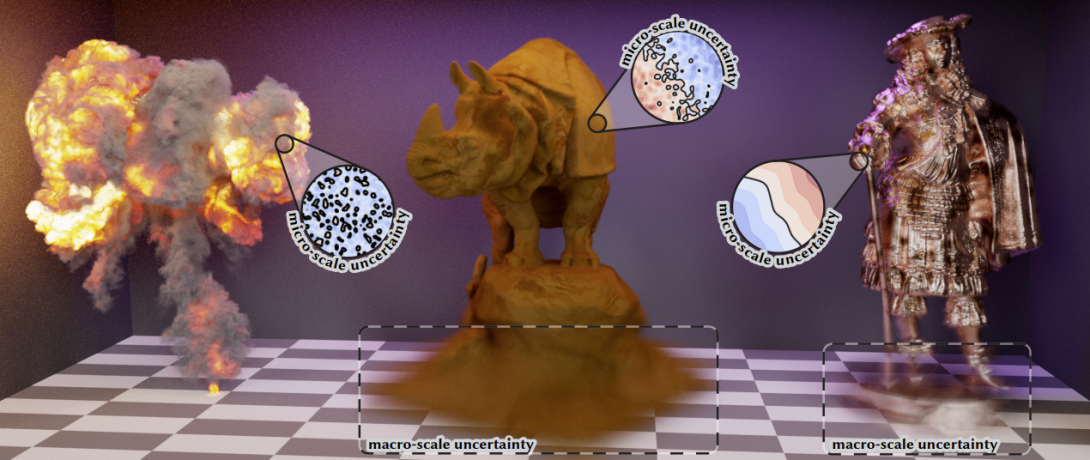From Microfacets to Participating Media: A Unified Theory of Light Transport with Stochastic Geometry

Stochastic geometry models have enjoyed immense success in graphics for modeling interactions of light with complex phenomena such as participating media, rough surfaces, fibers, and more. Although each of these models operates on the same principle of replacing intricate geometry by a random process and deriving the average light transport across all instances thereof, they are each tailored to one specific application and are fundamentally distinct. Each type of stochastic geometry present in the scene is firmly encapsulated in its own appearance model, with its own statistics and light transport average, and no cross-talk between different models or deterministic and stochastic geometry is possible.
In this paper, we derive a theory of light transport on stochastic implicit surfaces, a geometry model capable of expressing deterministic geometry, microfacet surfaces, participating media, and an exciting new continuum in between containing aggregate appearance, non-classical media, and more. Our model naturally supports spatial correlations, missing from most existing stochastic models. Our theory paves the way for tractable rendering of scenes in which all geometry is described by the same stochastic model, while leaving ample future work for developing efficient sampling and rendering algorithms.
